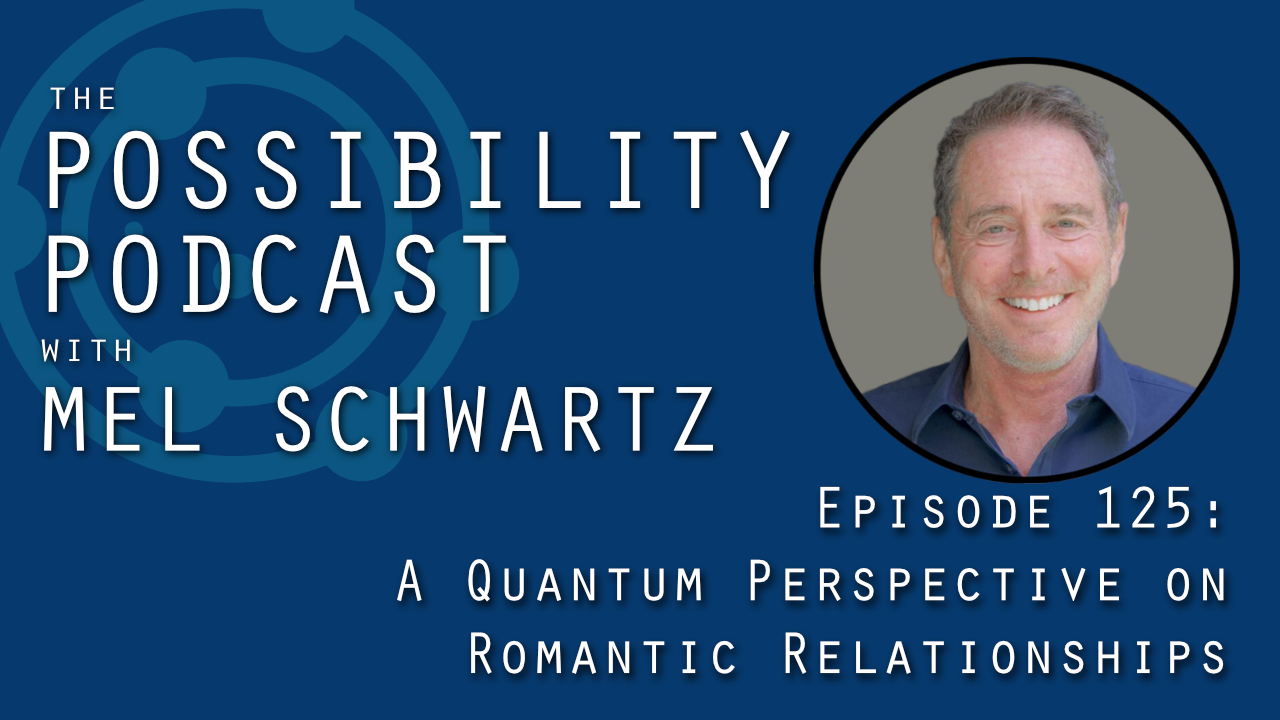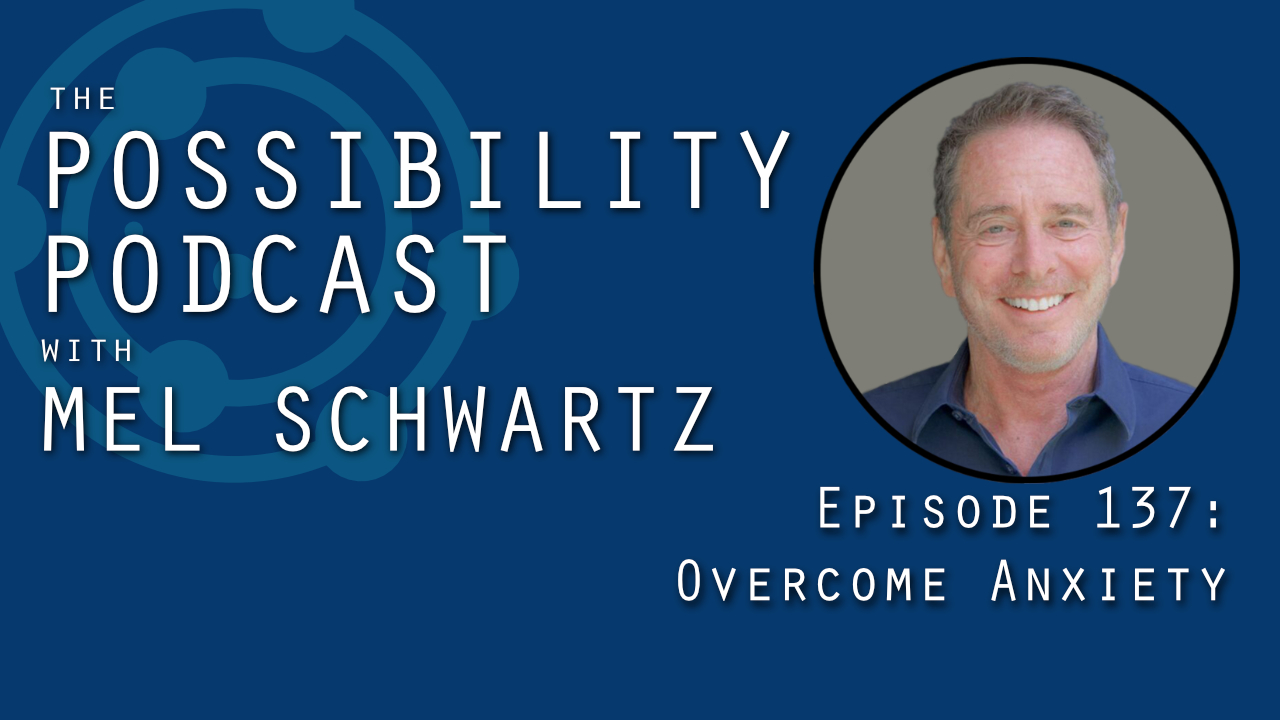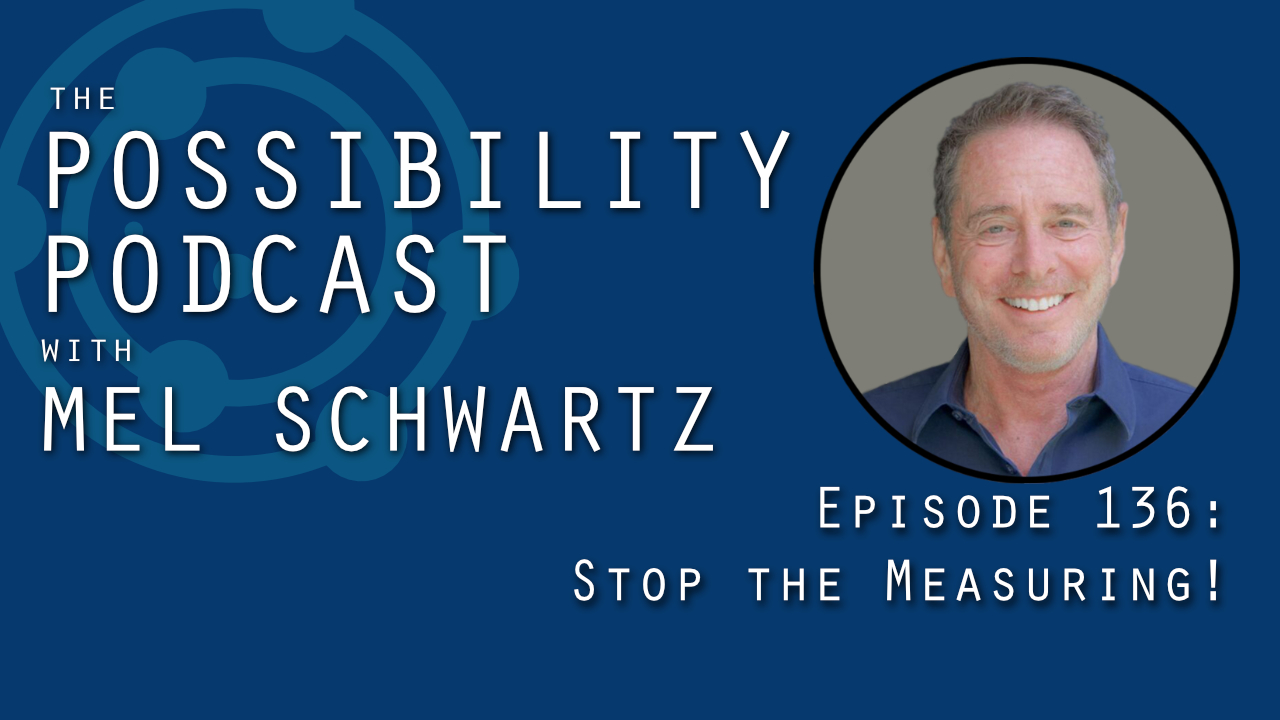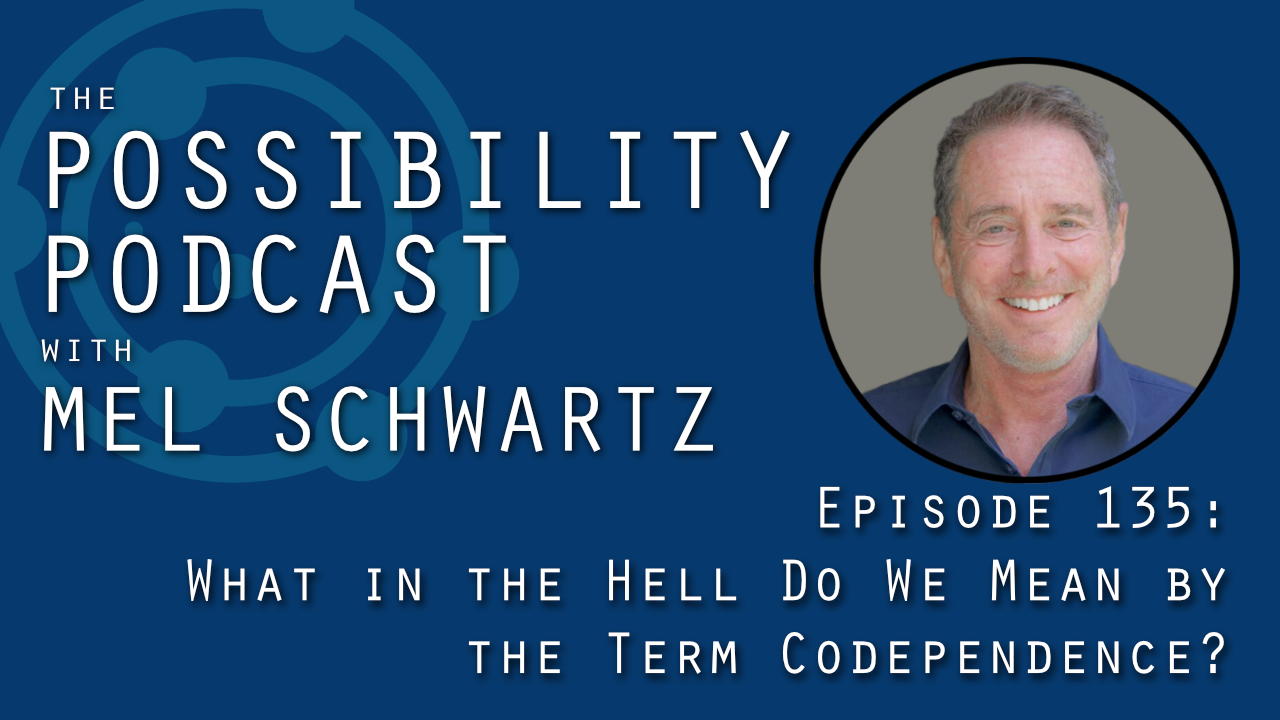Podcast: Play in new window | Download
Subscribe: RSS
In this 125th episode of The Possibility Podcast with Mel Schwartz, let’s use a quantum physics metaphor to examine romantic relationships.
Throughout the episode, I define several terms new listeners to the show may not be familiar with, such as quantum entanglement, mechanistic thinking, wave collapse, and others.
Don’t worry, there’s no science or math involved!
By mapping the concepts of quantum physics onto romantic relationships and the experience of falling and being in love, we’ll see how to sustain romantic love and maintain intimate, authentic communication with our partner.
I’d love to hear what you think! Has this quantum perspective on romantic relationships helped you? Be sure to leave a comment with your own thoughts and questions!
Subscribe to The Possibility Podcast with Mel Schwartz
Don’t miss a single Possibility Podcast with Mel Schwartz! Subscribe for free in iTunes / Apple Podcasts, YouTube, Spotify, RadioPublic, or wherever you listen to podcasts. Or, simply copy / paste the RSS link directly into the podcast app of your choice!
Please Rate and Review
If you enjoy The Possibility Podcast with Mel Schwartz, please take a moment to rate and review the show in iTunes / Apple Podcasts or Podchaser. It only takes a few minutes, and adding your review is as easy as clicking this link.
Your rating and review helps raise the visibility of The Possibility Podcast with Mel Schwartz, especially on iTunes / Apple Podcasts, which is one of the biggest podcasting platforms today. More visibility for the show means more listeners… and that growth means the show reaches — and helps — more people like you.
Thank you!
Talk With Mel!
Help others when Mel helps you: Contact Mel and find out how you can be a guest on the show and ask Mel a question. He’ll put the Possibility Principle to work for you, and your conversation will be recorded for use in a future episode of the podcast so other listeners can benefit. Of course, your anonymity will be respected if that’s your wish.
Transcript of The Possibility Podcast with Mel Schwartz #125
Hello everybody and welcome to the Possibility Podcast. I’m your host Mel Schwartz. I practice psychotherapy, marriage counseling, and I am the author of the book The Possibility Principle, the companion to this podcast. I hope to be your thought provocateur and I’ll be introducing you to new ways of thinking and a new game plan for life.
Buckle up. We’re going to take another deep dive into the art and nuances of relationship. And again, as I have done in the past, I’m going to look at some aspects of relationship through a quantum perspective. For those of you who are new listeners, I will be defining again and describing some of the terminology that I’ll be using about quantum applications to relationship.
Let’s begin by looking at the nature, the experience of falling in love. You know, the experience of falling in love is altogether reminiscent of something called quantum entanglement. In quantum entanglement, two photons, which have a shared state, think of that as they are in proximity to one another, they’re forever connected no matter how distant they become from each other. The falling in love part requires a falling away of the individual boundaries. As two people merge significant parts of themselves, they become a whole. Some people will refer to this as my other half or my better half, which is a frightful expression in my opinion, because it means I’m incomplete and I can only complete myself through you. That’s a relationship built upon neediness and insecurity. I’m talking about the falling in love, which speaks to a coalescing and emerging of two individuals into this entangled state of oneness, just like the quantum particles or photons.
Now all living beings are actually energy fields. And as energy fields, we manifest through physical form. Energy becomes physical. Mere physical attraction to each other, you know, just sexual attraction on a sensory stimulation level, that’s being in lust. But it’s not quite the same as being in love. Being in lust can create a oneness and lend to falling in love. And falling in love can invite in a sense of lust. But falling in love requires that our energies coalesce with each other. When this happens, our energy field resonates with our partner’s energy field. Think about two vibrations harmonizing with each other. Those two individuals, for a period of time at least, are no longer distinctly separate. This energetic interchange happens simultaneously on physical, emotional, and spiritual levels.
That’s what we call falling in love. And it makes falling in love potentially the most fulfilling experience in life. Sadly, though, over the course of time, many people say that they may still love each other, but they fell out of love. There’s a common belief that as the years pass, falling out of love is natural and to be expected. I would suggest that it may be ordinary, but that shouldn’t make it natural. We retreat from the sense of oneness. It’s often caused by the influence of mechanistic thinking, otherwise known as Newtonian separation. The illusion of separation falls away to allow us to fall in love and be as one.
But after a while, we retreat back into the separation, into this illusion of separation. Falling in love and sustaining it requires maintaining the shared energy, the entanglement. What happens when we retreat from the oneness? We forget that we were separate people who merged as one and then we start to impose our oneness on each other. We begin to think that my beliefs and feelings ought to be your beliefs and feelings. We superimpose on each other our own script and when the other person does not conform to our script, it’s a falling out of love. When two individuals are entangled in the state of oneness, empathy is obviously naturally occurring.
Now, of course, empathy and compassion become unsustainable when we retreat to separation and excessive individualism. As a couple slips from that endorphin-laden experience of Eros, they each start to fend for their individual needs at the expense of their entangled coupling. Now, you should always maintain a healthy sense of yourself within a relationship, but you need to secure a balance, which means that you’re in harmony with yourself and you’re in equilibrium with the relationship. That balance is an art form.
Relationships always offer a special opportunity for personal growth, but they come with disturbances and challenges. I have never worked with a couple where I have not seen the learning opportunity for both people through their conflict and struggles. Interpersonal relations showcase the chronic issues that each person brings into the relationship. You see, we each have our own individual coping mechanisms and our wave collapses from childhood spill over into the relationship.
For those of you who are new to the show, a wave collapse refers to those very significant events that shaped our identity and beliefs from childhood. They could be acute or chronic, but they really created the form through which we see ourselves and we see reality. Through those wave collapses, we develop a tendency to blame each other for relationship problems and that results in each person feeling invalidated, upset, or angry. When this happens, we pull back from the sense of oneness and we experience ourselves as separate and distinct. We begin to differentiate issues as his problem or her issue. What began as a loving, connected union starts to dissipate into conflict and the oneness withers into separation.
I’ll provide an example. I had been working with a couple. In the early stages of their relationship, they had been together for perhaps less than a year. They weren’t married, but they thought of themselves as in a monogamous and committed union. Judy had been recently divorced. She had two college-aged children and she maintained a close and amicable relationship with her ex-spouse. As our sessions progressed, it became evident that Judy had a need, emphasized the word need for cordiality with her former husband. That was masking an underlying issue. She felt compelled to be well thought of by her children and their father, by most people. That compromised her authenticity because she avoided any risk of confrontation.
This was due to a childhood wave collapse in which she did not feel the proper attention or love for her mother. So her coping mechanism was to go to the extreme and make sure everyone thought well of her. Protecting herself from the threat of not being well liked, she appeased her ex-spouse and avoided providing appropriate parental guidance to her children. This provoked her new partner, Howard. He was perplexed by her behavior. He felt she was disloyal. He thought that Judy was more concerned about what her former husband felt than by what he himself felt. And I could see that. Judy’s desire to avoid confrontation, to make certain not to displease others, had its root in that childhood. So again, this is the coping mechanism she created as a child in defense of a primary wave collapse, not feeling loved by her parents and in particular her mother. She believed that other people would find her lovable only if she accommodated them.
Ironically, she ended up displeasing her new partner at the cost of not upsetting her former partner. Now, Howard came into this relationship with abandonment issues, dating back to his mother’s departure from his life at a terribly young age. She shared with me that his fear of rejection had affected his prior relationships as well. So Howard tried to calm his anxiety about Judy’s commitment to him by exhaustively examining her behavior, feeling unloved. He relentlessly critiqued her interactions, her emails and text exchanges with her children and her former husband. As a result, Judy felt perpetually blamed. Their relationship started to unravel and they blamed each other for its demise.
When we see our partner’s insecurities and challenges as separate and distinct from our own challenges, we become tricked by the illusion of separation. Their issues become our issues. The issues may be different, but they are not separate. Think of a drop of ink as you drop it into a beaker of water. The ink disperses throughout the water and you can no longer find its trail. The same thing happens in relationship. Each person’s fears and challenges and unresolved issues become interspersed with their partner’s challenges and that triggers more reactivity, exacerbating the problems. As Judy and Howard clamored to have their individual needs met, they started to become warlike with each other, competing with each other rather than tending to each other. This leads to a competitive energy that was the opposite of the energy of falling in love. What had been affirmation turned to repudiation and the ability to listen defaulted to right versus wrong attacks. They retreated from their loving engagement into a competitive spirit of toxic individualism. These themes are sadly commonplace in many relationships, but perhaps even more so in a romantic partnering than in platonic relations.
I often hear one person say, I have no issues, but my spouse certainly does. How incredibly silly. If you believe your partner has issues, they are going to affect you, which means you have an issue as well. When you try to compartmentalize and separate the other person and yourself into separate silos, you’re seeing through the lens and the illusion of Newtonian separation. Two people who are intimately connected must see themselves through the filter of a co-participation. Think of yourself on a seesaw with the other person. You’re up in the air, the other person’s on the ground. Can you move to the ground without changing the other person’s position? Nope. You are inextricably connected, each person affecting the other. If we move past the attitude that sets up a win-lose, you versus me stance and move into the perspective entanglement, into the perspective of oneness, we begin to operate from a win-win mindset. That is the heart of a participatory relationship.
As I continued working with Judy and Howard, I helped them recognize and take ownership of their habitual coping mechanisms, which were exacerbating each other’s sense of upset. I worked with Judy to develop a genuine self-esteem, enabling her to get past her fears about how others saw her. I helped Howard appreciate that Judy wasn’t abandoning him, but she was operating from fear as she avoided confrontation. Their problems were personal to both of them, but it was essential not to personalize them. They each came into their relationship with their own personal histories and their own confining wave collapses and fears. And these artifacts had an impact on how they felt about each other. But by choosing not to personalize the artifacts of their past meant that they had no intention to inflict pain on each other.
Unresolved challenges have unintended ripple effects, but it’s best not to succumb to the angry emotion that arises when we think they’re doing this to me. No, they’re not doing this to me. This is who they are. You see, entanglement allows for the rise of empathy, which can help us remember that we came into this coupling with another human who’s probably still working past the scars of their past, just as you are. I helped Howard depersonalize Judy’s fearful attachments to her ex’s approval and asked him to feel compassion for her. She was operating from a fear grounded in her childhood, long before he came into her life. It was greatly affecting him, but it wasn’t about him. She wasn’t choosing her ex over him. After some time, this approach began to succeed. Howard no longer felt threatened by abandonment, and he began to lighten up on Judy.
Now, when you find yourself in an adversarial situation with your partner, ask yourself, is she or is he intending to hurt me or devalue me? You might even ask your partner if it’s their intention to be hurtful. If harming you isn’t their intention, then try not to personalize the behavior. This is not to suggest you have to surrender and accept unhealthy behavior. You can say something like, I feel so unimportant to you when you ignore me or tell me I’m wrong. I feel hurt. Do you care how I feel? Remember the importance of not arguing facts, but asking, do you care how I feel? However, if you’re thinking the worst of your partner because you’ve personalized their behavior and you go on the attack, you’re going to trigger your partner’s worst reaction, not a connected and concerned response, and so you will both spiral down. Whether you choose to connect with empathy or to separate in conflict, whichever you choose, you’ll get the corresponding result. When our relationships become hurtful, conflicted, and in turmoil, and it becomes adversarial, we need to acknowledge or change something to shift the energy away from the illusion of separation and back toward entangled wholeness, oneness. Making that shift may mean changing our beliefs and our perceptions or our behaviors, or maybe all of the above. If you set your intention to reenter the energy field of the initial romantic entanglement, you can selflessly try to get in the other person’s shoes. Now this doesn’t mean you’re abandoning your position. It simply means loving and validating your partner.
If I try to appreciate and care about my partner’s upset feelings, I’m invoking a shift of energy. Connecting empathically with your partner is the most powerful thing you can do in troubled moments. It’s not easy, but it is powerful. It can turn the tide from a competition and an emotionally and verbally abusive exchange, perhaps, back into the loving energy field. If you try this approach consistently and with genuine affection and your partner doesn’t reciprocate, then you might well rethink whether the relationship is the right place for you to be.
Another way of shifting the energy of your relationship is to express positive feelings for your partner. You know, once a couple’s entangled participatory energy drifts into separation, we often default into sharing critical thoughts and feelings. Negativity then fills the space, often in therapy. When I’m working with one individual without their partner and they share something positive or appreciative about their partner, if I ask, did you share that with your husband, with your wife, or with your partner? It’s almost the absolute exception for them to say yes. Look at that. We become acclimated to sharing the negative, yet we’re reluctant or awkward to express positive approving feelings because we’ve gotten stuck in a groove of negativity and that widens the gap. We may be holding back approval or appreciation not to give the other person a stronger hand. That is a sign that we have set up separate battle stations.
So set your intention. If you feel good about something your partner said or did, share it with them. And before you go into criticizing and defending, ask yourself, does this really matter? If it doesn’t, and you choose to let something slip by, you have a new wave collapse, and this can be an energy shifter. You know, from the mechanistic view of separation, the expression you can’t change the other person appears sensible. But from the quantum view of inseparability, if you change some aspect of yourself, that must affect your partner because you are as connected as quantum photons. My clients, Judy and Howard, were both demanding change from each other, a strategy that almost never succeeds. I explained the concepts of self-change and inseparability to them, both in couple sessions and individual meetings. And after some time, Howard was able to share with Judy that he appreciated her dilemma and he was happy to support her in her attempts to break through her old behavior. By making this change in himself, Howard was able to turn the tide of their entangled relationship. Dissonance, struggle is always an opportunity for growth.
I’m going to close with these thoughts today. Relationship provides golden opportunity to grow. It doesn’t mean you may be happy or should spend your lives with each other. But it’s an opportunity for growth. Each person’s challenges evoke and invite growth in the other person. The question is what that growth will look like. Going back to the theme of shifting from a stuck inner state of being into the process of becoming, a participatory evolving process. Think of your relationships as catalysts for your process of becoming as you try to move past your challenges. If two individuals see themselves through this filter, this prism of becoming, they have to see their relationships as such. That’s the heart of a participatory relationship. This is why relationships struggle and suffer and don’t succeed because we drop out of a cooperative participatory relationship. I think the fundamental purpose of close relationships is to open our awareness to aspects of our own selves that we need to tend to. If we existed in isolation, we’d never come to see aspects of ourselves through the eyes of the other. Our close connections with others catalyze our entry into this increasing consciousness, this awareness, this flow of becoming as we move past our stuck state of being.
Ask yourself, what do I need to see in myself that’s being provoked by the other person? And conversely, what am I precipitating in them? By opening to this dissonance that arises and you’ll look at yourself differently. If the other person sees you differently from how you see yourself, does that make the other person wrong? You see that conclusion doesn’t allow dissonance. This opening to dissonance, this inviting of dissonance as a positive value opens the door to new possibilities. So our own personal evolution vaults into this process of becoming. And it also facilitates the greatest potential for thriving in a relationship. Participatory relationships allow us to see our role in the whole of the relationship rather than separate from each other. As though we’re part of an equation and we’re on different sides of the equal sign. That’s a transactional relationship and they don’t work except with rare exceptions. Participatory relationships are opportunities for enormous learning individually on the relationship level as well. This shift of paradigm into participatory evolving relationships coming away from the illusion of separation, you versus me, back into oneness, that’s the path toward harmony.
I know I’ve said a lot in this episode. It’s a lot to digest. If you need more clarification about this, please, I would advise you to read or reread my book, The Possibility Principle, particularly the section on relationships. It is a deep dive, but it’s the most valuable dives that you can ever take. It’s well worth it. So jump on in. Until next time, be well, be healthy. I look forward to speaking with you again soon. Bye for now.
I hope you enjoyed this episode of the Possibility Podcast. I welcome your feedback on this and any episode. Please send me an email at mel at melschwartz.com or leave a comment in the show notes for this episode at melschwartz.com. If you like what you’re hearing, please take a moment to rate and review the show at Apple Podcasts, Spotify, or wherever you get your podcasts. Your reviews really help boost the visibility for the show, and it’s a great way for you to show your support. Finally, please make sure to subscribe to the Possibility Podcast wherever you listen to podcasts, and that way you’ll never miss an episode. Thanks again, and please remember to always welcome uncertainty into your life and embrace new possibilities.





Thanks for the interesting podcast Mel, I appreciated it! Especially the link with individualism and Newtonian physics—the individualism piece reminds me of Terry Real’s recent book “Us.”
But a question:
Do you have anywhere you’d suggest learning more about quantum vs. Newtonian physics, particularly in this humanistic front?
Ps – I tried rating you on Pocket Casts, where I listen to podcasts, but it’s a quasi-newer app and unfortunately doesn’t allow ratings yet…
Hi Brendan. Thanks for writing and it’s a pleasure to meet you. Perhaps without humility I’d of course recommend my book, The Possibility Principle, which zeros in specifically on how the emerging quantum shift in worldview frees us from the determination of Newton’s machine-like reality. My work is devoted to using quantum principles to guide us into the light of humanism. My thinking was very much impacted by pioneers that transcended compartmentalized thinking, such as David Bohm amongst others. Please write me directly at Mel@Mel Schwartz.com and I can offer your further suggestions. And thanks for following my podcast.